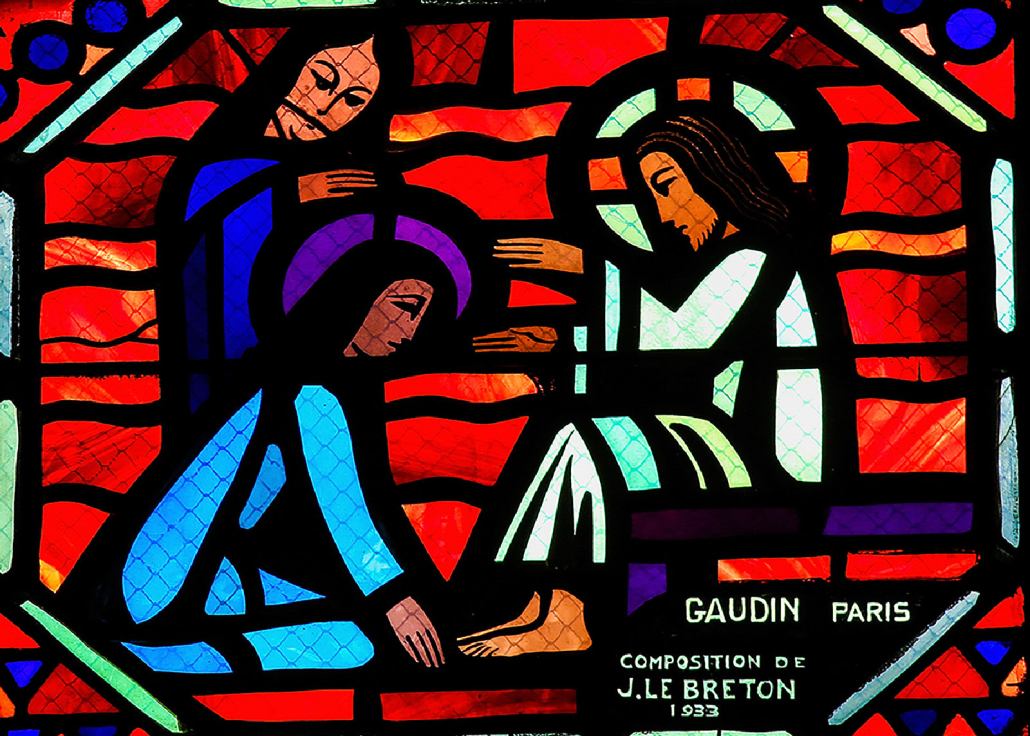‘The bonds of Sisterhood’
Andrew Collis
Ordinary Sunday 13, Year A
Genesis 22:1-14; Psalm 13; Matthew 10:40-42
Jesus the Teacher, we might imagine, sometimes surprised his disciples with a pop quiz. He probably tried to make it helpful and enjoyable. So, let’s imagine a multiple-choice quiz for conscientious disciples.
1. The word “apostle” means: (a) Messenger; (b) Missionary; (c) Envoy; (d) All of the above.
2. Which of the following were not among the 12 original apostles: (a) Matthew; (b) Bartholomew; (c) Moses; (d) Thaddeus.
3. Indicate all the correct answers. Among the 12 apostles there was: (a) A stamp collector; (b) A tax collector; (c) A fisher of fish; (d) Somebody with a nickname.
4. Jesus sent the 12 to preach good news of love and peace. He instructed them to take: (a) No money; (b) No umbrella; (c) No jewellery; (d) No silly hat.
In today’s (beautiful) reading from Matthew 10, Jesus says that faith means welcoming others and allowing others to welcome you. You can recognise faithful people, for example, as those who give and receive cups of cold water. Sounds simple, but there are many ways for us to welcome one another …
Process theologian Catherine Keller writes: “In the image of the creator we are invited to creative responsibility – an ability to respond in an appreciative relation to others, human and nonhuman. To respond not just dutifully but resourcefully, in the flow of creativity and in the beauty of grace” (On the Mystery, 2007).
The 12 original apostles were men. The Jewish nation was founded by Jacob/Israel who had 12 sons. So, Jesus is a Jacob figure calling 12 sons to renew the nation — to remind the people of Israel of God’s blessing 12 tribes, God’s love for the land and people.
Our Genesis reading reaches back a generation to the story of father Abraham and son Isaac (Ishmael, too). There are two words for God in the text: “El” and “YHWH”. And the angel of YHWH says: “Do not do the least harm to the child.”
Muslims commemorate this event on Eid al-Adha, this year between June 28 through July 2. Contrary to popular beliefs, then as now, God is a God of mercy and love. For the people of God, the story ends in life and blessing.
“Neither son, Isaac nor Ishmael, is rejected; both are blessed” (Rabbi Jonathan Sacks). We might also note the poignant scene where Isaac and Ishmael come together to bury their father (Genesis 25:9).
Today we remember the women called by Jesus to be disciples, apostles, teachers and leaders in the church. It seems fair that we acknowledge 12 women.
1. Mary (of Bethany)
2. Martha (of Bethany)
3. Mary Magdalene (Easter witness, teacher, Apostle to the apostles)
4. Salome (supporter of Jesus)
5. Joanna (supporter of Jesus)
6. Susanna (supporter of Jesus)
7. Chloe (of Corinth, a coworker with Paul)
8. Phoebe (deacon, benefactor, leader from church at Cenchreae, near Corinth, patron of Paul, very influential in the first four centuries)
9. Lydia (of Thyatira (western Turkey), a wealthy dealer in purple cloth, leader of house church – Acts 16:11-15)
10. Junia (eminent/outstanding among the apostles, wife of Andronicus, evangelist, imprisoned for her faith)
11. Priscilla (missionary, mentioned six times in the NT, a Jewish refugee from Rome, a tentmaker like Paul, teacher of Apollos the evangelist – Acts 18:26)
12. Euodia (a coworker with Paul)
13. Syntyche (a coworker with Paul)
14. Julia (missionary)
15. Persis (commended by Paul)
16. Tryphena (a coworker with Paul)
17. Tryphosa (a coworker with Paul)
So, that makes 17! And we haven’t yet mentioned Mary of Nazareth, mother of Jesus (Mother of God, Queen of Heaven, earthy protest singer).
In a New Testament world, a “man’s world”, the mention of these 18 women (not an exhaustive list) means a lot – it suggests these women were undeniably gifted and respected leaders. In other words, there were many women called by Jesus and in the Holy Spirit to be disciples and apostles.
If we focus on just one of these apostolic sisters, we might imagine Lydia (after whom our library is named). We imagine Lydia inviting people to her home in Philippi for prayers, storytelling, a meal, friendship (in the early days of the Jesus movement there were no church buildings as such).
Come in, Lydia says … Can I offer you something to drink? … Somewhere to wash your feet and hands? … May I introduce you to these friends of Jesus? … Are there any concerns or problems we can help you with? … Do you feel safe? … Are your family and friends safe? … Do you have enough money? …
You are welcome, Lydia says … There’s a place at the table for you … There’s plenty to eat and drink … You are safe here … Let’s read the Scriptures together, something from the holy book of Genesis, Exodus … the prophets, the psalms … We have a new letter from the apostle Paul, it’s very encouraging … Then we will pray … Then we will sing … Then we will break bread and re-member what Jesus was really like, how he valued every person as a child of God, and how he gave us new eyes/ways to see the beauty and goodness of the world … as a place of grace and wonder …
We thank God for every opportunity to show love, to offer and receive welcome, even if it’s simply sharing a cup of cold water … In the wintertime, of course, we might prefer a hot cup of soup or tea. Amen.




